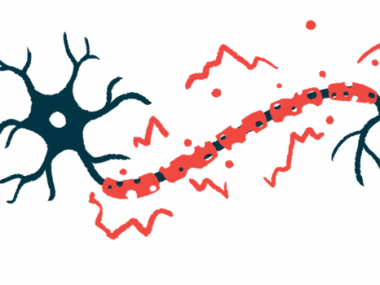We may share similarities, but all of our experiences are unique
Attending a podcast conference reminded a columnist of an important lesson
Written by |

Much like fingerprints, many experiences are similar at a glance but unique upon closer examination. This is especially true in the rare disease community. Although our conditions are very different, we have many things in common. This has been on my mind recently due to an unexpected source.
My friend Kyle Bryant and I attended a podcast conference last week in Denver, Colorado. Kyle and I have been co-hosting and co-producing a podcast for almost seven years. That show, “Two Disabled Dudes,” was our response to navigating life with Friedreich’s ataxia (FA). Although Kyle and I experience different effects of FA, some of our frustrations, struggles, goals, and dreams seem to be parallel.
At the conference, we met people from all sectors of the podcast industry, from software and hardware companies to marketing specialists, and from hosts of small shows to writers for large, recognizable media brands. The shows’ themes were just as diverse as the few thousand attendees, ranging from investigative reporting, comedy, and dog training to mental health.
Our genres and the communities we serve are undeniably different, yet the similarities in podcasting were obvious. Every show had to start somewhere and make adjustments as they grew. Every business has pain points, and everybody involved has had to make sacrifices to see their podcast succeed.
As I met dozens of others in the industry and sat through multiple presentations over four days, I felt overwhelmed with the library of information and all the advice being offered. Hundreds of ideas were shared, and all seemed worth consideration.
Toward the end of the conference, I felt overwhelmed and exhausted.
Remembering that we’re all unique
I remember feeling the same way after receiving my FA diagnosis. Everything the doctor said was loud yet unclear, and his words were like quicksand, creating a slow and dramatic sinking feeling that I couldn’t escape.
Of course, as I searched online for all things related to FA, I remember seeking advice from others familiar with the dreadful disease. I read articles from doctors and researchers and remember finding a couple of blogs written by or about individuals living with FA.
There was no shortage of opinions. This was true in my early days of learning about FA, and it was true at the conference last week.
Whether it’s about navigating FA or producing a podcast, I constantly ask myself: What advice should I follow? Which opinions should I listen to most carefully?
What I’ve found relevant in living with FA is how I approach podcasting: There’s no one-size-fits-all answer; what works for someone else may or may not work for me.
And that is the beauty of attending a conference or engaging with a community. Both are suited to offer multiple ideas, and everyone is encouraged to identify what may work best for them, try out different strategies, and make adjustments as necessary.
When I realize something isn’t working as I’d planned or hoped, I remind myself that I’m still improving and it’s OK to make adjustments. I hope you’ll remember that as well.
Note: Friedreich’s Ataxia News is strictly a news and information website about the disease. It does not provide medical advice, diagnosis, or treatment. This content is not intended to be a substitute for professional medical advice, diagnosis, or treatment. Always seek the advice of your physician or another qualified health provider with any questions you may have regarding a medical condition. Never disregard professional medical advice or delay in seeking it because of something you have read on this website. The opinions expressed in this column are not those of Friedreich’s Ataxia News or its parent company, Bionews, and are intended to spark discussion about issues pertaining to Friedreich’s ataxia.







Leave a comment
Fill in the required fields to post. Your email address will not be published.